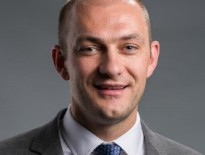
Lew Sichelman
Add a former get-rich-quick-with-real-estate pitchman on the A&E cable network to the laundry list of realty gurus who have found themselves in the crosshairs of the country’s top consumer watchdog agency.
Scott Yancey has been added as a defendant – along with Dean Graziosi, a self-proclaimed bestselling author and promoter of real estate investing – to the case brought by the Federal Trade Commission and the Utah Division of Consumer Protection against Nudge LLC. Authorities allege the company used false promises to convince consumers to buy real estate training packages that often cost tens of thousands of dollars.
If the proverb “a fool and his money are soon parted” remains true, Yancey and Grazioski won’t be the last to feel the government’s wrath. As soon as Uncle Sam shuts down one scam artist, one or two seem to pop up, playing on people’s desire to make their fortunes while barely lifting a finger.
The Nudge case is similar to one filed by the FTC and Utah against Zurixx, which promised people who attended its free seminars that they could generate substantial income by flipping houses. It often used celebrities from popular home renovation shows to lure its marks to the meet-ups, where the outfit showed supposed “success stories” of customers who claimed they had made thousands using the system.
$400M in Revenue
Both cases are still before the courts, and the defendants are under stipulated preliminary injunctions. Both also have been amended, but only well-known pitchmen Yancey and Graziosi have been singled out – so far – for their roles in a massive Nudge swindle that the FTC said bilked consumers out of more than $400 million.
“We believe these two TV personalities each made millions of dollars by assisting and facilitating this real estate investment rip-off,” said Andrew Smith, director of the FTC’s Bureau of Consumer Protection. “They were instrumental to the scheme and took a cut of the profits, and that’s why we’re seeking to add them to our case against the program’s operators.”
The pair were the primary celebs used to draw folks into attending seminars that falsely promised to teach a proven formula for real estate investing, according to the complaint. They allegedly were paid a percentage of the money people spent on training programs after attending a seminar they promoted.
They also are said to have been aware of numerous complaints from misled consumers but continued to work with Nudge to place positive reviews on third-party websites.
A Familiar Story
Stop me if any of this sounds familiar. As long as charlatans have tried to separate people from their money, there have been scams claiming that buying houses on the cheap and reselling them will generate big profits with little risk, time or effort. Like most such promises, it just isn’t so. The only ones making big money are those who peddle their “systems.”
Some years ago, investor-publisher John Reed told me that promoters of realty investment programs were essentially legit when they began. Some were better than others, but all were sincere, he said. But now, the guru world is populated mostly by con men who offer free seminars, then push paid classes and mentoring services.
“They are criminal enterprises,” he said.
Take Wade Cook, the taxi driver-turned-supposed real estate genius, who was convicted of seven counts of tax fraud and sentenced to 88 months in a federal penitentiary. Not only did he falsify his tax returns from 1998 through 2000 on royalty payments of $9.5 million, he obstructed federal investigations into his actions, a U.S. District Court jury in Seattle found.
Cook filed for bankruptcy three times and was brought up on charges by the FTC twice: once for misrepresenting the earnings potential of his advice and once for failing to comply with the FTC’s order to set up a redress program and alter advertising claims. Even after he and his wife, Laura, were charged with tax evasion in 2005, he started a new company and still claimed 20 percent monthly returns by using his so-called “secret weapon.”
Meanwhile, former A&E host Armando Montelongo is still fighting with more than 400 of his former students over their belief that he engaged in a “pattern of racketeering.” A federal court dismissed their original suit because his accusers failed to meet the standards required by the RICO Act. So, they refiled in Texas, where the defendant resides. At last report, a Texas appeals court had rejected Montelongo’s petition to reverse a trial court’s decision to allow the case to proceed.
If all this doesn’t sound the alarm to anyone considering buying into one of these get-rich-quick schemes, I have a nice bridge that connects Brooklyn to Manhattan I’d like to show you. You can even make payments.
Lew Sichelman has been covering real estate for more than 50 years. He is a regular contributor to numerous shelter magazines and housing and housing-finance industry publications. Readers can contact him at lsichelman@aol.com.





